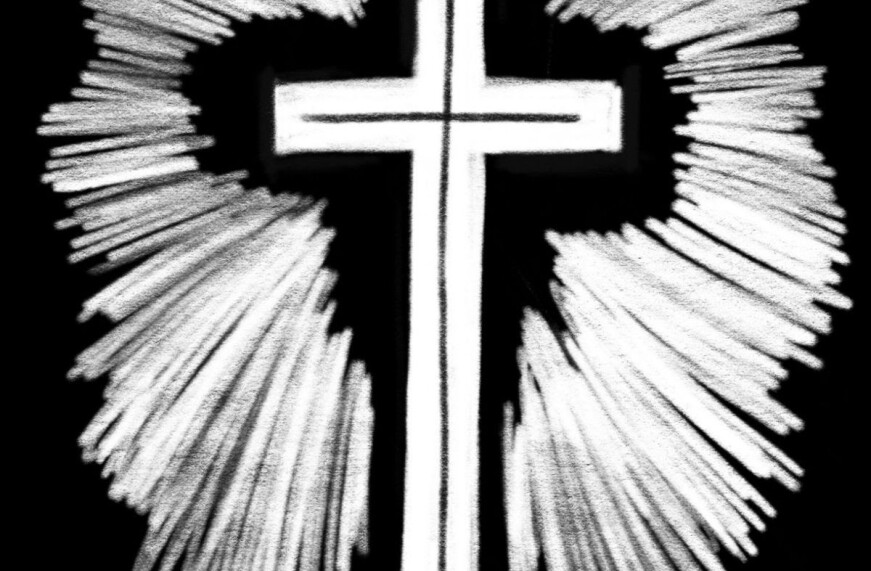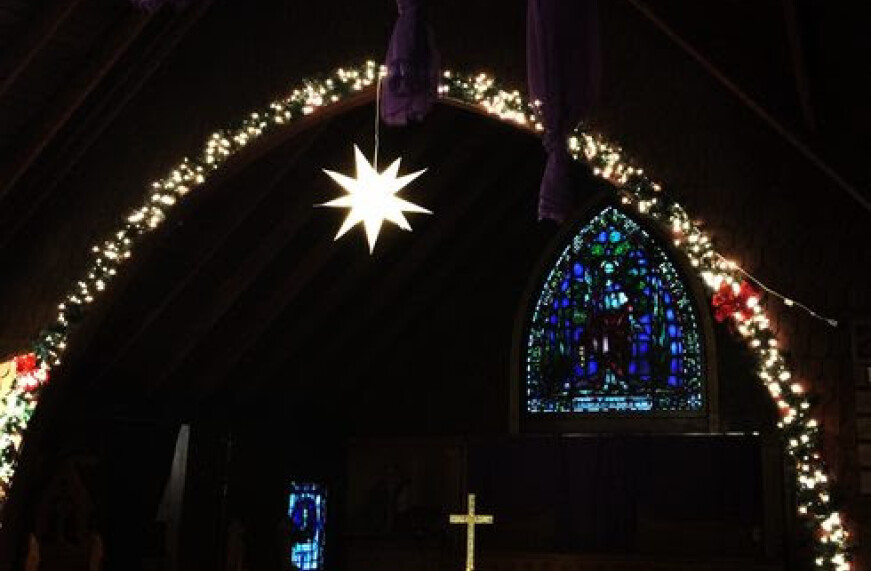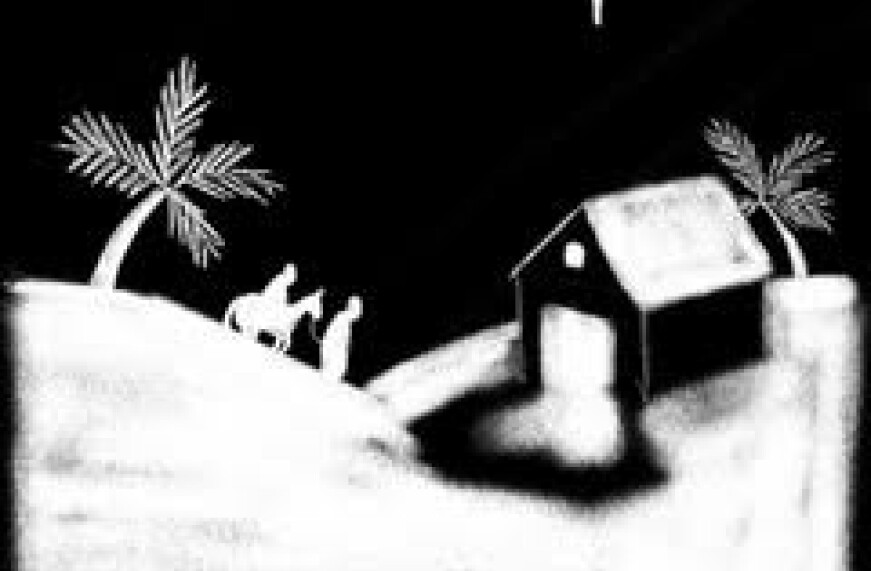Dear Brothers and Sisters in Christ,
On Ash Wednesday, we are asked to commit ourselves "to observe a holy Lent, by self-examination and repentance; by prayer, fasting, and self-denial; and by reading and meditating on God's holy Word." (BCP 265) This commitment is done individually with the understanding that we are in community and is meant to be relational – because it is meant to deepen and renew our relationship with God and each other.
Below we offer descriptions of the Lenten offerings and ask you to formally make a commitment to a Lenten practice. Sometimes when we commit and make that commitment known to someone else it makes it easier for us to follow that commitment - because we all know from lots of New Year's resolutions, it's not always so easy even when our heart is in it. Making new habits takes time. So we've made it easy by creating a form! we invite you to fill it out once you've figured out what spiritual practice you would like to take up this Lent.
In peace with love,
The Mothers
Lent Sign up & Commitment Form:
Click: https://forms.gle/CiQU78W2qx4g2wy4A
Weekly Contemplative Prayer
7:30am Wednesday mornings March 2nd (Ash Wednesday) through April 13th.
Every Wednesday morning in Lent we will engage in the ancient prayer of Lectio Divina at 7:30am via Zoom.
In Christianity, Lectio Divina is a traditional Benedictine practice of scriptural reading, meditation and prayer intended to promote communion with God and to increase the knowledge of God's Word. It does not treat Scripture as texts to be studied, but as the Living Word that reveals its relevance in our lives today. We will pray seasonally relevant scripture. No previous experience necessary. Sessions will last approximately 30 minutes.
Daily Reading/Praying/Reflecting on the Lenten reflections
For the past few years, parishioners have engaged in reflecting on a piece of scripture and offering their thoughts in the form of a daily Lenten reflection that gets emailed out. This year we will continue this practice along with our audio component so that you can listen to the scripture of the day, the reflection and end with the Lord's Prayer. As a practice, this would mean to commit to reading or listening to the daily scripture and reflection and spending some time with it yourself.
100 Days of Scripture
Reading of Luke-Acts from February 26 through June 5 (Pentecost)
During Lent we are specifically called to read and meditate on scripture. We will begin this practice just before Ash Wednesday and finish on the Feast of Pentecost. This cycle of our Sunday Gospel readings are from Luke, so this way we get to read the whole Gospel, and continue along with Acts which was written by the same author. We will meet before the start virtually to give everyone some historical context and answer questions. We will provide the books from Forward Movement that gives us the reading for each day, along with a reflection and some questions for consideration. Already 20+ parishioners have signed up. Please sign up by February 20th.
Lenten Book selection
Our two recommended books are meant to get us to reflect on where God is moving in our lives, how we journey through wilderness and suffering, and how we experience joy and healing.
The Book of Joy by Archbishop Desmond Tutu & the Dalai Lama
Nobel Peace Prize Laureates His Holiness the Dalai Lama and Archbishop Desmond Tutu have survived more than fifty years of exile and the soul-crushing violence of oppression. Despite their hardships—or, as they would say, because of them—they are two of the most joyful people on the planet. In April 2015, Archbishop Tutu traveled to the Dalai Lama’s home in Dharamsala, India, to celebrate His Holiness’s eightieth birthday and to create what they hoped would be a gift for others. They looked back on their long lives to answer a single burning question: How do we find joy in the face of life’s inevitable suffering? They traded intimate stories, teased each other continually, and shared their spiritual practices. By the end of a week filled with laughter and punctuated with tears, these two global heroes had stared into the abyss and despair of our time and revealed how to live a life brimming with joy.
A Spring in the Desert by Frank & Victoria Logue
Jesus stepped out of the water of baptism into uninhabitable wilderness, emerging forty days later to offer the water of life for those thirsting for God’s presence. A little more than two centuries later, a group of Christians withdrew from a spiritually barren Roman Empire to find their faith blossom in the stony soil of the Egyptian desert.
Frank and Victoria Logue offer a Lenten journey inspired by the many passages of scripture that use images of water in the desert as a sign of the healing and wholeness that come through God alone. To this they add the distilled wisdom of the Desert Mothers and Fathers and the surprisingly rich inspiration of the plants and animals that thrive in an arid land. Along the way, they will share the ways our faith speaks to the barren places in our lives and how those times of drought can be a source of strength.
Deacon John will lead weekly discussions on this book Saturday mornings.
Devotional Art Class: Meditation on Resurrection with Fr. Regan O'Callaghan
5 Sundays at 4pm via Zoom starting March 5. Cost $50 for the 5 sessions to cover supplies. Space is limited.
Art has long been a spiritual practice, especially the ancient practice of Icon writing. Join Regan O'Callahan for 5 Sundays in Lent where you will create your own mixed media meditation on the Resurrection with painting. Supplies will be provided and distributed prior to March 5.
Regan O’Callaghan is an artist/priest presently living in France but originally from New Zealand. Previously he lived in the United Kingdom where he studied art and religious studies including the technique of icon writing (painting). In 2001 Regan was ordained into the Church of England. He combines his religious ministry with art leading many art projects and workshops as well as painting a number of commissions including icons for Saint Paul’s Cathedral London and Sherborne Abbey, Dorset. He believes in a ministry of encouragement where art is the facilitator. Today Regan’s art practice has built on the technique of icon writing combining contemporary themes with traditional techniques. He is also inspired by the natural environment and humankind's relationship/connection with their surroundings.
Lenten Craft: Tin Crosses
Sunday, March 13th following the 10am service
Join us as we craft and create beautiful tin crosses inspired by Mexican folk art. All materials and instruction are provided. Please sign up in the back of the church. Materials fee $5/person.
Lenten Craft: Ukrainian Eggs
Thursdays 11am-1pm, March 3, 10, 17, 24, 31, April 7.
Join us for the traditional Ukranian craft of pysanka, a form of prayer similar to icon writing. You will learn to design a pattern, transfer to an egg, wax and dye your egg. No previous experience necessary. Please sign up in the back of the church. Materials fee $10/person for the 6 weeks.
Giving Up something
Traditionally, we hear of folks, or maybe we have, given up chocolate or meat or alcohol for Lent. This practice aims to go deeper to reflect on what is getting in your way to being closer to God - is it gossip? envy? anger? jealousy? etc...This practice asks you to spend some time before Lent begins to figure out what might be getting in the way of a closer relationship with God and committing to "giving it up" for these 40 days.
A little help from a friend, a Lenten Friend
Like any athlete who trains to perform their feat, like any artist who wakes early to create, in order to be Easter people, we must practice. This is what Lent is all about. Lent is a time to stop, to clear our noisy lives, and focus in on our call—our call to seek Justice, love mercy, and walk humbly with God.
We hold Lent for 40 days. Jesus was in the wilderness for 40 days, preparing for his ministry and being tested by the devil. During Lent, we join Jesus in the wildness. By simplifying our lives, we open ourselves to the inner wildness we spend so much time avoiding. Be it grief, or longing, shame, or disappointment. By clearing out space in our lives we open ourselves to the unknown. This is a time of mystery—we commit to spiritual practices seeking to see what we do not see and hear what we do not hear, so that we may encounter buried truths about ourselves, about life, about God. And we truly have no idea what we may find.
Which is why Lent can be intimidating! But take heart; we are not alone. We travel through the wilderness of Lent with the One who knows the wilderness well, the One who endured it, the One who created it. But this year at Holy Apostles, we also have an opportunity to travel through Lent with a friend. This year, if you would like, we will pair you up with a “Lenten Friend,” someone from Holy Apostles community, to go through Lent together. So once you have selected your practice and filled out the form, the last question will be, do you want a Lenten Friend who will travel these 40 days with you. If you say yes, we will pair you up with someone else who has also signed up for your same practice.
Youth Art Project Sunday School for Lent
During Lent the youth (grades 1-9) are invited to join teaching artist, Traci Molloy for a 5 week exploration of making art based on stained glass windows. They will get to create work together that shows images of the last week of Jesus’ life and contemplate this ancient tradition. The earliest known stained glass in a church dates to 675 in Monkwearmouth, North East England. In our offerings for the youth this year we are hoping that the practice of making art (in different form and mediums) is helpful for them to be co-creators with God. No sign up is necessary for these sessions. While your child does not need to attend all classes ideally your child would attend a minimum of 3 sessions so that they would be able to complete their own project.



